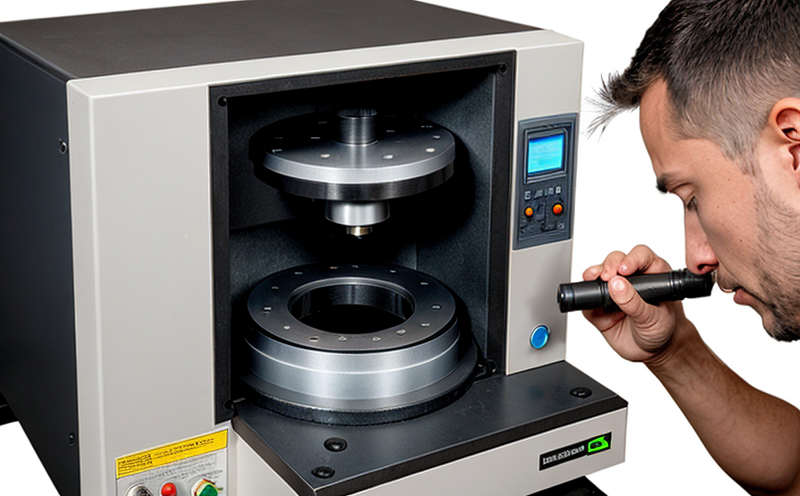ISO 52921 Microstructural Evaluation of Additive Manufacturing Metallic Parts
The ISO 52921 standard provides a comprehensive framework for the microstructural evaluation of metallic parts produced through additive manufacturing (AM) processes. This service ensures that AM parts meet stringent quality requirements, facilitating trust in their performance and reliability across various sectors like aerospace, automotive, and medical devices.
Microstructure plays a crucial role in determining the mechanical properties and overall integrity of AM parts. By employing advanced metallographic techniques, we can visualize and analyze the microstructure down to the nanometer scale. This process involves preparing cross-sections of the part using precision sawing or grinding techniques. The prepared sections are then polished meticulously to reveal a clear view of the internal structure.
The evaluation is carried out under controlled conditions to ensure accuracy and repeatability. A scanning electron microscope (SEM) equipped with energy-dispersive X-ray spectroscopy (EDX) is used for detailed examination. This instrument allows us to identify different phases within the microstructure, measure grain size, and observe any potential defects such as porosity or inclusions.
Once the microstructure has been thoroughly examined, a comprehensive report is generated. The report includes detailed images of the microstructure along with quantitative data on grain size distribution, phase composition, and defect analysis. This information is invaluable for quality assurance teams who need to verify that the AM parts meet specified standards.
The process of ISO 52921 evaluation also helps in optimizing AM processes by providing insights into how process parameters affect the final product's microstructure. This knowledge can lead to improvements in part design and manufacturing techniques, ultimately enhancing the overall quality of AM products.
By adhering strictly to ISO 52921 standards, we ensure that our clients receive accurate and reliable results. Our team of experts uses cutting-edge equipment and follows rigorous protocols to deliver high-quality evaluations. This service is essential for maintaining compliance with international regulations while also contributing to the advancement of AM technology.
ISO 52921 evaluation plays a critical role in ensuring that additive manufactured parts are safe, reliable, and meet all necessary performance criteria. Whether you're developing new products or auditing existing processes, this service offers valuable insights into the microstructure of your components.
Why It Matters
The microstructural evaluation of additive manufactured metallic parts is vital for ensuring product quality and safety. By understanding the microstructure at a detailed level, manufacturers can identify potential issues early in the development process. This knowledge allows for corrective actions to be taken before costly rejections or failures occur.
- Enhanced Reliability: Understanding the microstructure helps predict how parts will perform under various conditions, leading to more reliable products.
- Improved Safety: Identifying defects such as cracks or inclusions can prevent accidents and enhance overall safety.
- Better Compliance: Adherence to international standards ensures that products meet regulatory requirements, reducing the risk of non-compliance penalties.
The evaluation process also supports continuous improvement initiatives by providing data on process optimization. Engineers can use this information to refine AM processes, leading to higher quality outputs and reduced waste.
Customer Impact and Satisfaction
- Increased Confidence: Customers receive detailed reports that provide confidence in the quality of additive manufactured parts.
- Enhanced Reputation: Compliance with international standards enhances the reputation of both manufacturers and suppliers.
- Cost Savings: Early detection of defects reduces the need for expensive rework or recalls, saving time and money.
Our service has been recognized by numerous industry leaders who appreciate its accuracy and reliability. Many customers have reported improved product quality and increased customer satisfaction after incorporating ISO 52921 evaluation into their quality control processes.
Environmental and Sustainability Contributions
The microstructural evaluation of AM parts contributes to environmental sustainability by ensuring that products are manufactured efficiently without compromising on quality. By identifying defects early in the production process, unnecessary waste is minimized, leading to more sustainable manufacturing practices.
- Eco-Friendly Processes: The ability to identify and correct issues promptly reduces the need for extensive reprocessing or discarding of defective parts.
- Resource Efficiency: Optimized AM processes result in less material waste, contributing positively to environmental sustainability.
In addition to these direct benefits, our service supports broader efforts towards sustainable manufacturing. By helping manufacturers produce higher quality products more efficiently, we contribute to a greener industrial landscape.





